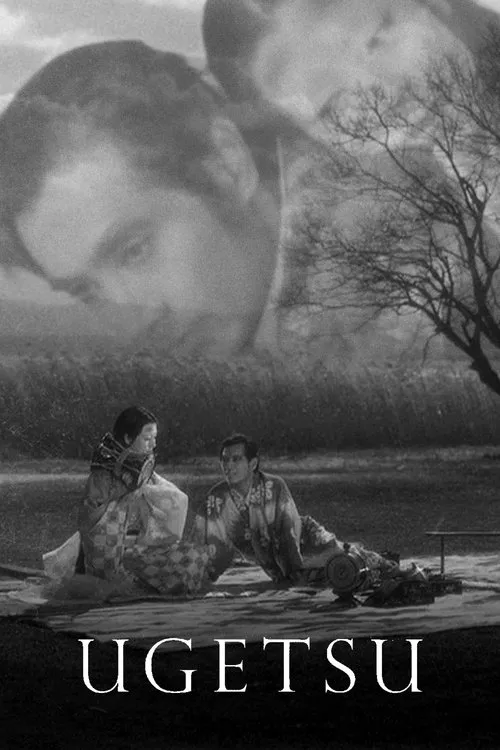Ugetsu

Handlung
In the misty and tranquil atmosphere of 16th century Japan, the lives of two peasants, Genjuro and Tobei, are about to take a dramatic turn. The year is marked by the perpetual presence of war, a situation from which not everyone can escape intact. As they navigate the complexities of their mundane lives as potters in the rural village of Kanazawa, both men make a fateful decision that sets them on a path of self-destruction. The catalyst for their downfall is none other than the ominous and prophetic warning given by a local sage, which serves as a harbinger of the chaos that is yet to come. The movie "Ugetsu" is a poignant and poignant exploration of the lives of four ordinary people, their struggle with desire and the devastating consequences of their choices. Set against the backdrop of feudal Japan, the narrative is layered with themes of love, greed, and the supernatural. The director, Kenji Mizoguchi, skillfully weaves a complex tapestry of emotions, using the fragile lives of his characters to reveal the darker aspects of human nature. At the heart of the story are Genjuro and Tobei, two close friends who are inseparable despite their vastly different aspirations. Genjuro, a hardworking and resourceful potter, is driven by a fierce determination to improve his family's fortunes. His sights are set on the prosperous city of Sakai, where a lucrative market awaits for his exquisite earthenware. However, his ambition is fueled not only by a desire for financial stability but also by an infatuation with the enigmatic and alluring Lady Wakasa. A mysterious and beautiful woman from a higher social class, Lady Wakasa is an elusive and unattainable figure, whose very presence in Genjuro's life sets in motion a chain of events that will ultimately lead to his downfall. Tobei, on the other hand, is consumed by a romanticized notion of becoming a samurai. Despite his humble origins, he sees the warrior class as the epitome of honor and valor, and longs to emulate their noble pursuits. His fixation with samurai values drives him to seek out the guidance of a skilled swordsman, who teaches him the ways of combat and prepares him for the battles that lie ahead. As the two men set off on their individual journeys, their wives, Miyagi and Ohama, are left behind to face the harsh realities of life in the countryside. These women, who have been relegated to the shadows, are ultimately the most tragic figures in the narrative, as they suffer the consequences of their husbands' reckless decisions. Miyagi, Genjuro's loving and supportive wife, is a testament to the quiet strength and resilience of women in a patriarchal society. Ohama, Tobei's simple and devoted partner, is a contrast to the more aspirational nature of Miyagi, highlighting the difficulties faced by women who are trapped in loveless marriages and forced to live in poverty. The supernatural elements that pervade the narrative serve as a metaphor for the destructive power of desire. Lady Wakasa, who is an embodiment of Genjuro's fantasies and aspirations, becomes a ghostly figure who haunts his every waking moment. Her mysterious and elusive nature is both captivating and suffocating, representing the way in which our deepest desires can both liberate and enslave us. The film's climax is a poignant and shattering testament to the devastating consequences of Genjuro's choices. As he returns to his village, he finds himself haunted by the memories of his affair with Lady Wakasa and the tragic fate of his wife. The once-happy couple is now reduced to a shell of its former self, with Miyagi living in abject poverty and Genjuro grappling with the guilt of his past actions. The final scenes of the movie are a poignant exploration of the human condition, as Genjuro struggles to come to terms with the destruction he has wrought upon his life and the lives of those he loves. The haunting and atmospheric landscape of the film serves as a constant reminder of the transience of human existence, as the fleeting nature of life is revealed through the struggles of the characters. In the end, "Ugetsu" is a tragic and haunting masterpiece that serves as a powerful exploration of the human condition. Set against the backdrop of feudal Japan, the narrative is a poignant reminder of the devastating consequences of our choices and the fragility of human existence. The film's themes of love, desire, and the supernatural are woven together in a complex tapestry that ultimately serves as a testament to the enduring power of art to capture the essence of the human experience.
Kritiken
Empfehlungen




